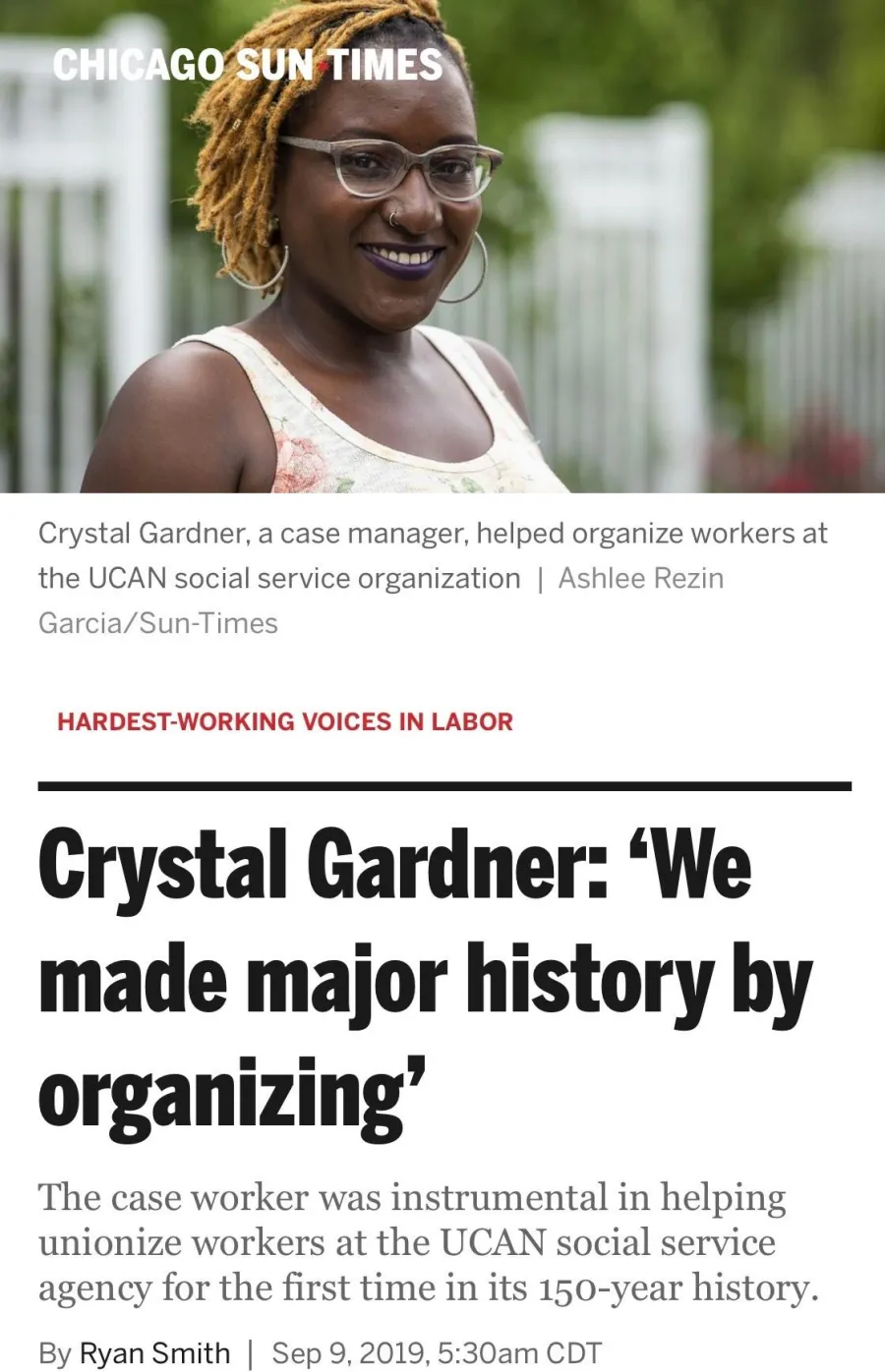"We made major history by organizing"

In 2018, workers at UCAN, a social service agency in Illinois, organized and fought for union recognition as AFSCME. Read below about why workers fought for their union rights to improve their working conditions and lives.
“When Crystal Gardner and 200 of her UCAN coworkers won their union fight in March 2018, AFSCME Council 31 became the first union to ever represent employees at the Chicago-area social service agency originally founded as a Civil War orphanage 150 years ago.
“We made major history by organizing,” Gardner said. “Like this was big, real big.”
The battle wasn’t easy. UCAN’s management waged an anti-union campaign and hired a union busting attorney to convince employees to vote against it, according to a spokesperson for AFSCME Council 31.
But Gardner, a case manager at UCAN and a member of the bargaining unit, said she and her co-workers were motivated by a lack of resources. “The conditions, the wages and the benefits aren’t where we expected them to be or weren’t where what we deserved. More than half of my coworkers do not have health insurance because it’s too expensive,” she said.
A job at UCAN opened up in 2015, and Gardner started as a residential treatment specialist working directly with at-risk youth ordered to live in an onsite dorm in North Lawndale for 12 to 18 months by the Illinois Department of Children and Family Services. A year later, she was promoted to case manager.
“I love my job,” Gardner said. “My mantra in life is to enhance the quality of life for others, and I enjoy being part of having an impact on these kids’ lives — many of whom have experienced severe trauma. That’s UCAN’s mission. We prepare them to be tomorrow’s leaders.”
That enthusiasm has been tempered at times by what Gardner describes as overwork and insufficient compensation. “It’s the industry in general, but we’re overworked, underpaid and definitely understaffed, which adds to us being overworked. So you experience some compassion fatigue. and that’s when you don’t feel you have anything else in you to give,” she said.
Part of the reason for organizing a union in 2018, she said, was to make sure that fatigue didn’t become permanent. Working conditions at UCAN have improved in the year and a half since then, but a contract between the two parties is still being negotiated.
“There’s still work to be done,” she said.”
